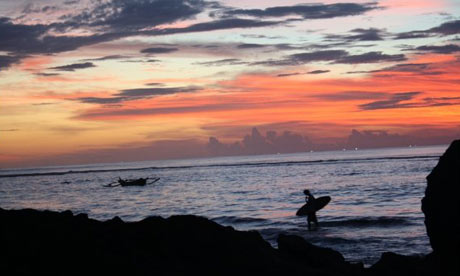
Kisara is a member of the International Planned Parenthood Federation, and was established in 1994 in response to the increased problems facing young people in Bali such as unwanted pregnancies, HIV, and drug use. Kisara uses young volunteers to help educate their peers; I've been involved as a youth volunteer since 2009.
We use many approaches to promote sexual and reproductive health (SRHR), including:
• Peer education in the community
• Training new volunteers and young people in and outside school
• Counselling – either face-to-face or by phone or email
• Developing campaigns linked to special events such as World Aids Day
• Radio broadcasting
• Media, apart from our website www.kisara.or.id, we also produce leaflets, and run a Facebook page, and Twitter account to promote Kisara's activities and SRHR issues
Kisara works with young people in schools but also in the community, with lesbian, gay, bisexual and transgender young people, street people, and many others.
STT or Sekaa Teruna Teruni is a youth community in every village in Bali; all Balinese young people become a member of their local STT. I wasn't particularly active in my STT, until became involved in Kisara, since then I have delivered peer education to my fellow STT members.
It still taboo to talk about sexuality in my society. We rarely use the word "sexuality", it is better to use the phrase "reproductive health", which is more easily accepted. When we say sexuality, many people think it is only about having sexual intercourse. It is hard to discuss issues such as sexual diversity and contraception for young people, as older people still have negative views on these topics.
Peer to peer education helps when discussing sensitive issues with young people, who often find it easier to express their opinions openly with people their own age. Young people also trust their peers – rather than adults – to keep their secrets.
My parents have been very positive about my involvement in Kisara. But sometimes it is hard to talk with them about certain issues, because they have a different view on young people's sexuality, especially when we talk about sexual diversity. But even though we often argue on this issue, my parents always support my activities in Kisara.

